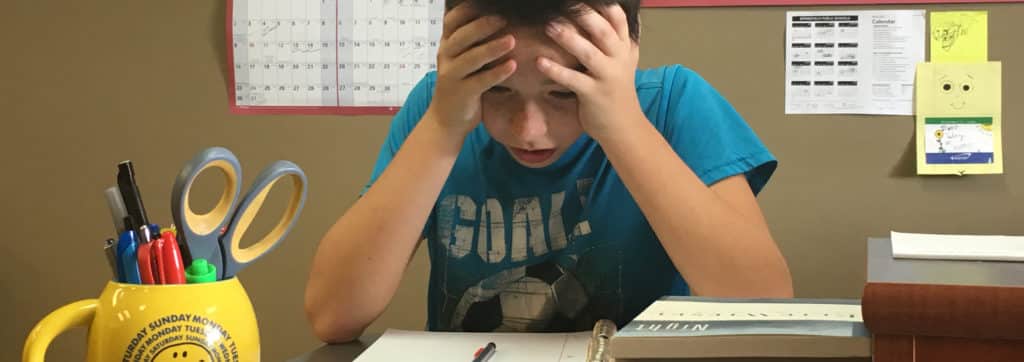Although I have no children of my own, I do have a thirteen-year-old brother. My mother is homeschooling him, and the kid is very bright. He whistles instrumental movie soundtracks after hearing them once. He designs and builds complex Lego creations, complete with moving parts and intricate backstories. He watches scientific debates on YouTube in his free time.
And the boy will not capitalize the first words in his sentences no matter how many times his mother reminds him to.
Neither will he indent paragraphs, write a fully developed paragraph, or often even answer the writing prompt completely!
Why is this smart young man struggling with writing so much?
My mother has struggled too! Sometimes she feels like a failure as an educator because her seventh-grade son is writing like a third grader. Other times, she feels crazy because she knows she taught him how to capitalize, indent, and organize his paragraphs, yet he just doesn’t! She can only pull at her hair and cry, “What else am I supposed to do?”
Many homeschool parents experience this: their smart, capable child struggles with writing well.
What are you supposed to do about it?
I have no definitive, fix-all answer to give, but I can share some important principles to keep in mind:
1) Recognize that every student is different.
As an educator, you want to challenge your student and teach them what they need to know; as a homeschooler, you also want to meet them where they are. Some students learn at a different pace than other students. That’s okay!
2) Break it down into small pieces, even the content your student “should” know at this point.
Rather than given them another writing assignment and hoping they will do better this time, break the assignment down into small parts. Have them focus on writing a paragraph at a time or even a sentence at a time! Separate the organization, drafting, and revision into entirely different steps. Break the “big” assignment down into small, conquerable steps.
Also, provide a checklist for your student that they can work through as they write. For example, even though my thirteen-year-old brother should know to capitalize the first words of sentences, his brain isn’t reminding him to do that for whatever reason. If he sees that task on a checklist, however, he will remember that rule and make that correction in his work.
The Essentials in Writing workbooks provide checklists for each composition, but you may need to create personal ones for your student that address the specific areas in which they struggle.
3) Press on.
This advice is directly from my mother. Sometimes, the only thing to do is to keep trying, keep reminding the student what they need to do, and keep correcting them when they still don’t do it. The only alternative to pressing on is quitting, but you should never quit on your child. Don’t feel like your student is behind some universal standard of “should” that fits no one. Press on with your own student in what they need to learn. They are worth the effort and time.
By Athena Lester
Curriculum Development and Scoring Services





